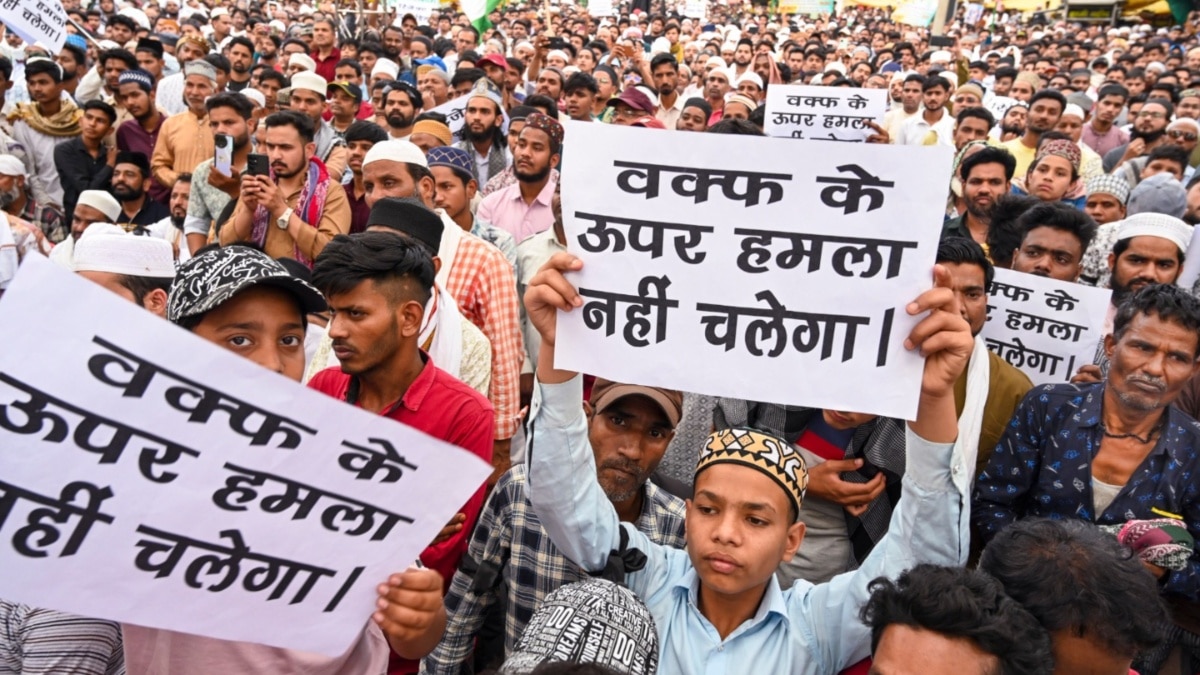
As many as 73 petitions have been listed for hearing before a three-judge bench comprising Chief Justice Sanjiv Khanna and Justices Sanjay Kumar and K V Viswanathan.
The Supreme Court is set to hear a batch of petitions on Wednesday against the constitutional validity of the controversial Waqf (Amendment) Act, 2025, which has sparked widespread protests across the country since it was passed.
As many as 73 petitions have been listed for hearing before a three-judge bench comprising Chief Justice Sanjiv Khanna and Justices Sanjay Kumar and K V Viswanathan. The hearing of the petitions will begin at 2 PM today.
Who Are The Applicants?
The petitions have been filed by leaders from various parties, including Congress MPs Imran Pratapgarhi and Mohammad Jawed, Trinamool Congress MP Mahua Moitra, and Samajwadi Party MP from Sambhal Zia-ur-Rahman Barq.
Rashtriya Janata Dal, Janata Dal United, Asaduddin Owaisi’s AIMIM, YSRCP-led by former Andhra Pradesh chief minister Jagan Mohan Reddy and the Tamilaga Vettri Kazhagam chief and actor-turned-politician Vijay have also moved the top court on the issue.
Indian Union Muslim League, the All India Muslim Personal Law Board (AIMPLB), Jamiat Ulama-i-Hind Arshad Madani, the Dravida Munnetra Kazhagam (DMK), and the Communist Party of India (CPI) are also among the key petitioners.
Association for the Protection of Civil Rights, Samastha Kerala Jamiathul Ulema, Anjum Kadari, Taiyyab Khan Salmani, Mohammad Shafi, Mohammed Fazlurrahim have also filed petitions, which have been listed for hearing today, news agency PTI reported.
Advocate Hari Shankar Jain and one Mani Munjal have also filed a separate petition.
ALSO READ: After Short Patch-Up, Paswan Chacha-Bhatija Return To Poll Battle. Will It Impact Bihar Elections?
What Do The Petitions Say?
While the protesters of the Act argue that the law violates fundamental rights and would seize properties, the central government has stressed that the amendment is necessary to ensure transparency in the management of Waqf properties.
The DMK moved the apex court through its deputy general secretary A Raja and said in a press release: "Despite widespread opposition, the Waqf Amendment Bill, 2025 was passed by the union government without proper consideration of the objections raised by the members of the JPC and the other stakeholders."
AIMPLB spokesperson S Q R Ilyas said in a press statement that the petition strongly objected to the amendments passed by Parliament for being "arbitrary, discriminatory and based on exclusion".
The statement further noted that the amendments not only violated the fundamental rights guaranteed under Articles 25 and 26 of the Constitution, but also "revealed the government's intention to take complete control over the administration of Waqf, therefore, sidelining the Muslim minority from managing their own religious endowments."
"Articles 25 and 26 of the Constitution ensure freedom of conscience, the right to practice, propagate religion, and the right to establish and manage institutions for religious and charitable purposes," it said.
ALSO READ: MHA Withdraws Y-Plus CRPF Security Cover For Mayawati’s Nephew Akash Anand
The petition filed by Jamiat Ulama-i-Hind claimed that the Act was a "dangerous conspiracy" to strip Muslims of their religious freedom, calling it a "direct attack on the country's Constitution, which not only provides equal rights to its citizens but also grants them complete religious freedom".
Samastha Kerala Jamiathul Ulema, a religious organisation of Sunni Muslim scholars and clerics in Kerala, has also filed a petition, slamming the Act for being a "blatant intrusion" into the rights of a religious group to conduct its own religious affairs.
Owaisi, who filed his plea through advocate Lzafeer Ahmad, said that the Act was "diminishing the protection given to Waqfs while retaining them for religious and charitable endowments of other religions constitutes hostile discrimination against Muslims and is violative of Articles 14 and 15 of the Constitution, which prohibit discrimination on the grounds of religion".
Meanwhile, Jawed's plea alleged the Waqf Act imposed "arbitrary restrictions" on Waqf properties and their management, which undermines the religious autonomy of the Muslim community. The petition also said that the law discriminated against the Muslim community by "imposing restrictions".
AAP MLA Khan demanded that the law be declared as unconstitutional as it violates "Articles 14, 15, 21, 25, 26, 29, 30 and 300-A of the Constitution".
NGO Association for the Protection of Civil Rights also challenged the constitutional validity of the Act.
(With inputs from PTI.)















0 Comments